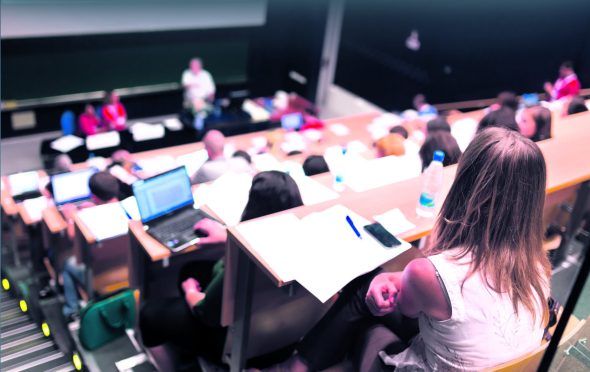
Hundreds of university students in Scotland have been caught using AI to cheat.
Four in five institutions across the UK have reprimanded students in the past two years for turning to banned bots such as ChatGPT to plagiarise content and pass it off as their own work, Freedom of Information (FOI) requests reveal.
North of the border, Aberdeen’s Robert Gordon University was found to be the worst, with 211 cheats penalised within that timeframe. Dundee’s Abertay University was the second worst, with 72 cheaters, and the University of Glasgow came third, with 51.
Others included Glasgow Caledonian University which detected 30 AI sneaks. St Andrews – once home to Prince William and Kate Middleton – caught 23, and 22 students were rapped at Stirling.
Universities Scotland, the representative body of Scotland’s 19 higher education institutions, said the numbers caught cheating show its members must keep pace with the latest developments in artificial intelligence.
“Universities will always take cases of academic misconduct seriously and this includes students who utilise AI inappropriately to complete their assignments,” it said.
“The use of AI offers both risks and opportunities to universities, and institutions should embrace change as students begin to reach for AI in the way we have done for other digital tools, while recognising it can be prone to errors, should only be used appropriately, and should not be solely relied on for information.”
It added: “Universities are collaborating closely with relevant expert bodies on ICT (information and communication technology) and academic integrity to help inform their processes on AI as the technology advances.”
AI cheats
Artificial intelligence company AIPRM submitted Freedom of Information requests to 157 UK universities, and 80 responded. Some 65 institutions nationwide said they had caught cheats, while 15 – including eight in Scotland – said they had not detected any.
In Scotland, 431 students were penalised for using AI over the last two years – mainly by plagiarising content and passing it off as their own work.
Giveaways include repeated use of words like “delves”, “showcasing”, “underscores”, “potential”, “enhancing” and “exhibited”.
Others include incorrect references (because AI finds page numbers difficult), sudden changes in writing styles, and the absence of sloppy grammar.
Robert Gordon University – which detected more than 200 AI cheaters in the past two years – said: “To ensure fair assessment arrangements for all students, and to assure the academic integrity of our awards, we take a robust but supportive approach in the event of suspected academic misconduct including the use of AI detection tools and penalties in the event of academic misconduct occurring.”
Abertay University – which disciplined 72 students – said it has both IT systems and human checks in place to detect plagiarism and this includes processes for detecting the passing off of AI-generated work.
It said its student academic misconduct policy outlines the range of sanctions which can be imposed, ranging from warnings on bad practice through to the full discontinuation of studies.
It said: “The use of AI is an issue which affects every university and we teach our students how to embrace the ethical use of the technology and to critically evaluate it, while also taking a robust approach to misuse.”
AI ethics
Teachers union the EIS said it backed calls for the UK Government to launch a cross-sector commission to establish an ethics and principles framework for the use of AI.
It added: “As a trade union representing many lecturers, the EIS is clear that the use and development of AI must be set in the context of digital ethics, and can see that its use is not without risk in an educational context.
“As AI becomes more prevalent within society, it is essential that students are not only educated in the perceived benefits of AI but are able to assess any risks and the impact of those risks on their education, their qualifications and on their life choices more generally.”
AIPRM boss Christoph Cemper said: “AI is a tool, not a substitute for writing your own work. Markers use AI themselves to detect bot use but still struggle – a study at Reading University found they failed to spot 94% of AI-generated answers.”
The Scottish Government said that the rise of AI cheating was an ongoing concern but that universities are autonomous institutions with responsibility for their own disciplinary processes and academic misconduct policies.
It added: “However, we expect them to put in place robust measures to guard against any form of cheating and work with staff and students to protect and promote academic integrity.”

Enjoy the convenience of having The Sunday Post delivered as a digital ePaper straight to your smartphone, tablet or computer.
Subscribe for only £5.49 a month and enjoy all the benefits of the printed paper as a digital replica.
Subscribe